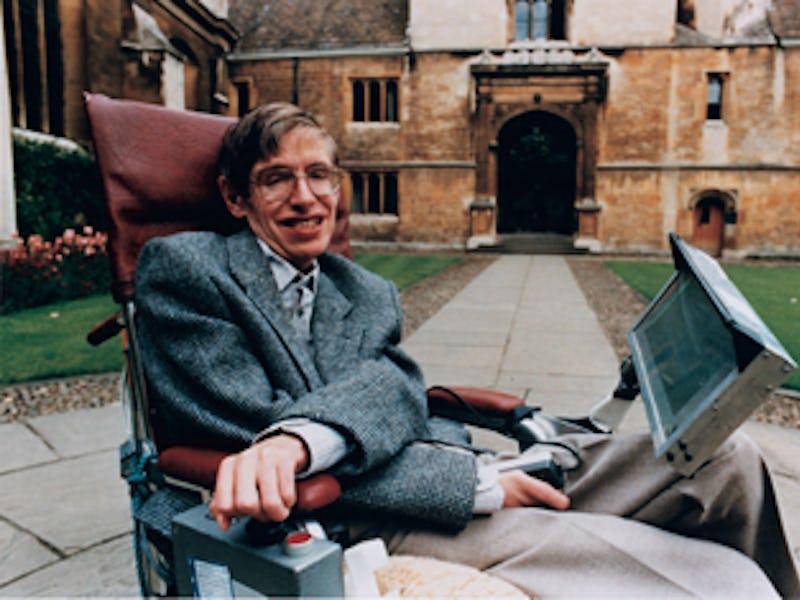Stephen Hawking and Thomas Hertog's Paper Considers End of the Universe
Luckily, there are other universes.

Two weeks before his death, Stephen Hawking submitted what would become his final research paper. The controversial research not only re-examines the Big Bang theory and explores the possibility of multiple universes, but considers an approach to finding these universes, should this one cease to exist.
The paper “A Smooth Exit From Eternal Inflation?” was published this week in the Journal of High Energy Physics. Co-author Thomas Hertog, from the Institute for Theoretical Physics at the University of Leuven in Belgium, said that Hawking completed this final paper from his deathbed and wanted to give the concept of the multiverse a “testable scientific framework.”
The theory of inflation, whereby the universe expanded exponentially after the Big Bang and then continued to expand at a slower rate, creates what Hawking and Hertog call a “slow roll” that is highly irregular, with “exceedingly large or infinite” surfaces and universes. “However,” Hawking and Hertog say in their introduction, “this account is questionable, because the dynamics of eternal inflation wipes out the separation into classical backgrounds and quantum fluctuations that is assumed.” The pair offers a holographic measure of eternal inflation as a solution, one based in string-theory and quantum cosmology.
“It reduces the multiverse down to a more manageable set of universes which all look alike,” Hertog told the Guardian. “Stephen would say that, theoretically, it’s almost like the universe had to be like this. It gives us hope that we can arrive at a fully predictive framework of cosmology.”
By using these applications, Hawking and Hertog conclude that all universes must share some law of physics. While the theory of eternal inflation is still considered impossible to test, this paper may give scientists a more structured process to identify other universes.
That will come in handy since Hawking also held theories on the end of this universe. Hawking argued that this universe will eventually fade into blackness, much like a star running out of energy, a theory that had garnered criticism. However, his final paper with Hertog reinforces the idea that the universe is less complex and finite.
“We waited with publishing this,” Hertog said to the European Commission, “because we first wanted some more evidence to support this conjecture.” The result is an approach that Hertog hopes will be the start of future testing, yielding ways in which other universes can be detected and defined. “I’m reasonably hopeful that both further observations and further work on the theory will eventually enable us to test our models of the big bang,” he said.
Before his death, Hawking insisted that these tests must soon be developed to give humanity more options. “We are running out of space, and the only place we can go to are other worlds,” Hawking said. “It is time to explore other solar systems. Spreading out may be the only thing that saves us from ourselves.”